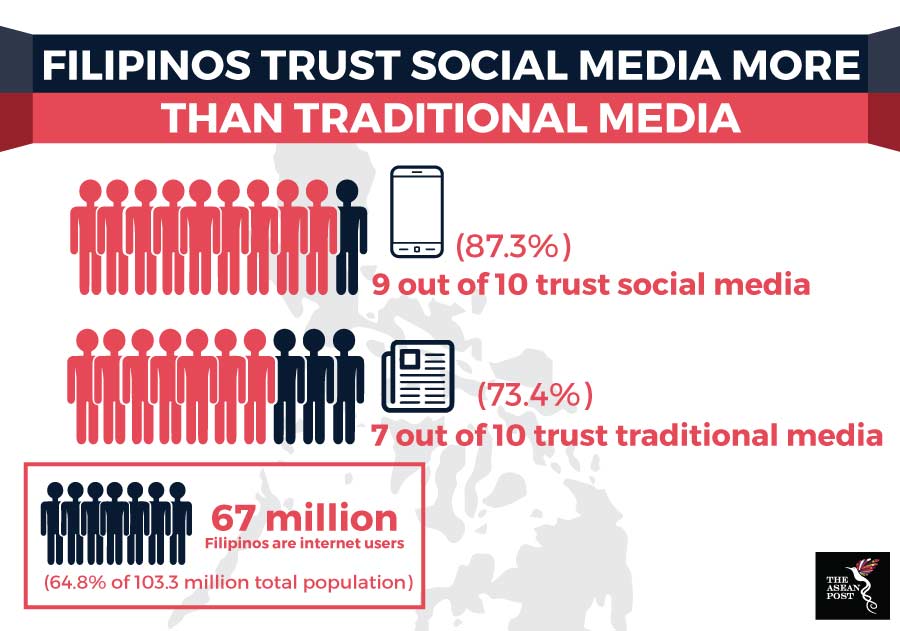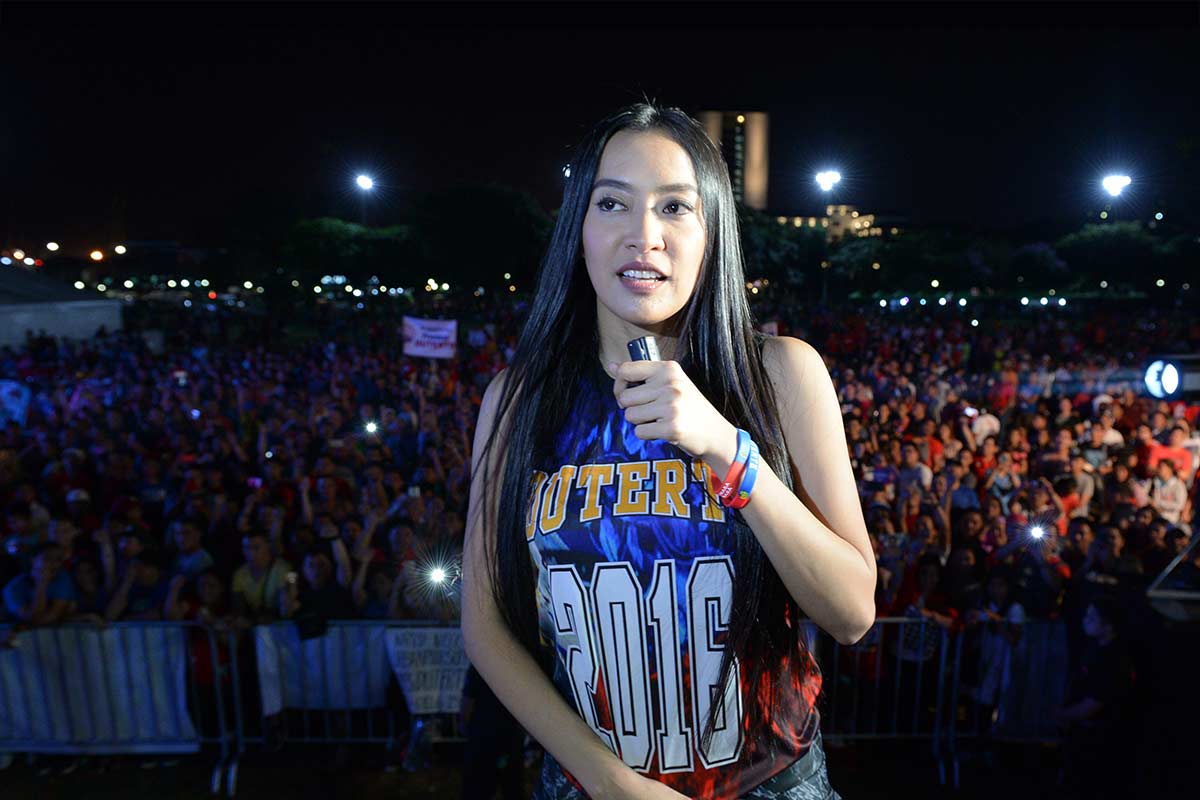Social media is big in the Philippines. According to United Kingdom (UK)-based consultancy We Are Social’s Digital 2018 report (which compiles data from various third-party sources), the Philippines topped the world for the third year in a row in terms of social media usage as the average Filipino spends about four hours a day on social media. The majority of users there are on Facebook and Instagram but something else they seem to enjoy is reading blogs.
In a list of 50 of the most popular blogs in the Philippines, YugaTech is estimated to have 2.9 million users in monthly traffic and a social media community of 265,800. WhenInManila has an estimated monthly traffic of 1.5 million users and a social media community of three million.
While YugaTech focuses mostly on technology and WhenInManila on leisure and lifestyle, the popularity of blogs in the Philippines has led to some bloggers using the medium to allegedly spread misinformation.
Pro-Duterte bloggers and their rise to power
Reports have concluded that social media played a big part in President Rodrigo Duterte’s electoral victory in the Philippines. There have also been numerous reports of a “keyboard army” supposedly paid up to US$60 a day to operate social media accounts to increase support for the president or to attack his critics both during and after the election.
A 2017 Oxford University study found evidence that the Duterte camp spent around US$200,000 on funding some 400 to 500 “keyboard trolls”, which the president has denied. Freedom House, a US-based government-funded non-governmental organisation’s most recent global internet freedom report brought discussion of the issue back to light but a presidential spokesperson has denied the charge.

Source: Various sources
According to Nic Gabunada, who led the Duterte camp’s social media team during the 2016 election campaign, using social media as a campaigning tool was borne out of necessity or a lack of funding.
In rewarding the efforts of his social media team, Duterte appointed several Philippine-based pro-Duterte bloggers to key government posts. Margaux “Mocha” Uson, who was a prominent pro-Duterte social media personality and blogger, now heads the presidential communications social media office which, among other functions, handles an interim policy on the accreditation of bloggers who wish to cover the activities of the president. Others include suspended lawyer Trixie Cruz Angeles, who has the title of consultant, and Lorraine Badoy, who has been appointed undersecretary.
Blogging and fake news
Filipino journalists and fact-checkers are concerned because some pro-Duterte bloggers and social media users have allegedly been known to slip a fib every once in a while. In August 2017, Philippine police gunned down Kian delos Santos, making the 17-year-old student another casualty in Duterte’s war on drugs. The police officers implicated in the shooting told a legislative inquiry that the boy was a drug courier, citing social media posts that alleged drug links.
In March 2017, Badoy (previously also an undersecretary at the social welfare department) came under fire for hurling accusations of child pornography at Duterte’s critics.
Considering the popularity of social media among Filipinos, these concerns are valid. In another survey conducted in 2017, the fifth Philippine Trust Index (PTI) showed Filipinos who have access to the Internet trusted social media more than traditional media. According to the survey, nine out of 10 Filipinos (87.3%) trust social media, while only seven out of 10 (73.4%) trust traditional media.
The sheer number of Filipinos online also presents another point of concern as far as misinformation goes. “When you have so many followers on social media, what you say, even if untrue, might be believed,” non-profit organisation Foundation for Media Alternatives executive director Lisa Garcia said.
Moreover, in a recent news report, Duterte’s aides announced that bloggers and other social media “influencers” who have more than 5,000 followers will be eligible for official press passes to cover the president. Uson will oversee the accreditation process.
Unfortunately, stricter laws are not going to win the war against fake news. The Philippines has already gone down six places to 133rd in the 2018 World Press Freedom Index. Perhaps what needs to be done is to fight the war on the enemy’s own turf, a tactic which is already being used by some “anti-Duterte” bloggers.
Related articles:
Indonesia takes important step towards countering terrorism on social media
